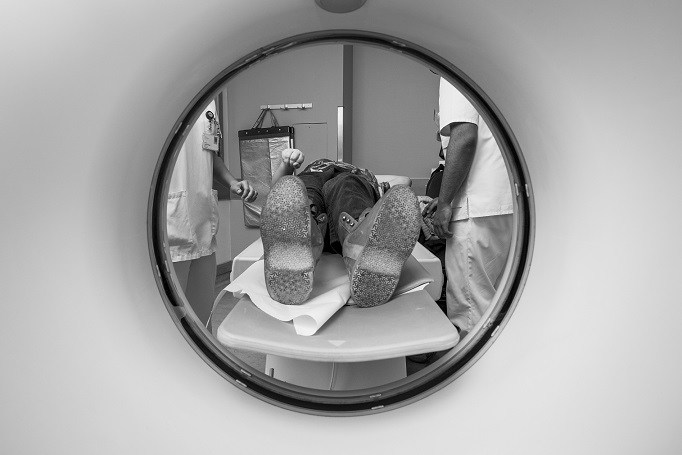Declared euthanasia cases have more than doubled over the last decade in Belgium since assisted dying legislation came into force. Now, however, supporters of the law want to go further, writes Justin Stares
The recent emergence in the Netherlands of suspected ‘suicide powder’ sellers helping hundreds to end their lives is reigniting the debate over euthanasia on both sides of the border.
Dutch prosecutors are investigating a 28-year-old man from Eindhoven, named in local media as Alex S, accused of selling packets of a deadly cocktail for €20 to anyone who asks, irrespective of age and medical condition. Meanwhile, a 78-year-old Dutch psychologist, Wim van Dijk, claimed in a newspaper interview in October that he gave ‘suicide powder’ to more than 100 people.
While euthanasia is legal in both the Netherlands and Belgium, assisted suicide can lead to a prison sentence. Yet the line between assisted suicide and euthanasia can be fine. Doctors in the Netherlands feel they can “interpret” the euthanasia law if the patient's wishes are unclear, the public prosecutor warned in letters leaked to media over the summer.
But Belgium, too, has recently seen a high-profile court case. It centred around the euthanasia of 38-year-old Tine Nys, who was suffering severe “psychic” problems. In 2018, eight years after the act and after protests from Tine’s relatives, the three doctors who approved the decision were prosecuted for death by poisoning.
In what was the first case of its kind since Belgium’s euthanasia law was introduced in 2002, a jury acquitted the doctors. The public prosecutor decided not to appeal, but Tine’s relatives did.

The start of the trial last year of the Tine Nys's doctors - her psychiatrist, her general GP, and the doctor that carried out the euthanasia. Credit: Belga
The case is therefore ongoing and, despite the first acquittal, it has had a chilling effect on doctors’ willingness to practice euthanasia, says Jacqueline Herremans, president of Belgium's francophone Association for the Right to Die in Dignity. “I know of several doctors who say they would rather not expose themselves to that kind of risk,” she says.
Who can conduct euthanasia?
Euthanasia in Belgium may only be practised by a doctor, who applies drugs either intravenously or orally (the latter is rare). The law is in theory applicable to children (there have been four child euthanasia cases in since 2014).
The law – controversially, for euthanasia supporters – requires not only that a patient have a “serious and incurable pathology” and the suffering be “constant and unbearable”, but that the patient be capable of “repeatedly” expressing his or her wish to die.
Filling out a euthanasia request form in advance is therefore sometimes not sufficient if the applicant subsequently develops dementia and is no longer able to confirm his or her desire to die.
As a result, only 48 dementia sufferers were recorded in Belgium’s euthanasia statistics for 2018-2019, a drop in the ocean of the country’s 150,000 dementia patients.
No such confirmation is required in the Netherlands, where the law instead emphasises that the doctor should ensure an individual’s decision is “voluntary” and “well thought-out”. Doctors can therefore end the lives of sufferers who have in the past expressed a will to die, and who are no longer able to do so (in one controversial case, a doctor sedated an agitated patient before administering the fatal dose). If doctors follow the right procedure, they are in theory protected by the law.
Right to die or ‘terminal sedation’
In the Netherlands, in 2019, out of a declared 6,337 cases of euthanasia, 162 were suffering from dementia, and another 68 from other psychological illnesses.
In Belgium, there are around 2,500 declarations a year, compared to around 1,000 ten years ago. There was a dip in declarations in March and April last year, at the height of the Covid crisis, which Herremans attributes to doctors in many cases losing access to patients, including in care homes.
Despite doubling, the 2,500 declarations are still less than 3% of all deaths in Belgium every year. Deaths in hospital following terminal sedation – arguably a form of euthanasia – are six or seven times as high.
Non-residents can and do come to Belgium seeking euthanasia. While statistics have only now begun to be collated, there are known to have been referrals from doctors in other countries, including France.
There is no mention in the Belgian law of nationality or residency requirements, Herremans says. She nevertheless discourages those who are suffering from a psychological illness from coming to Belgium because meeting the law’s requirements can take 18 months or more. For patients with a condition such as a terminal, incurable cancer, on the other hand, decisions can be taken much faster.
One statistic that has hardly changed over the last decade is very Belgian in nature: the language used to fill out declarations. Around 76% of all declarations are in Dutch (ten years ago it was 80%), proportionally much higher than the Dutch-speaking-to-francophone ratio among Belgium’s inhabitants.
This mismatch could be cultural. One of the hypotheses is that there are fewer euthanasia requests in French-speaking Belgium, perhaps because doctors are more reluctant to broach the subject.
Euthanasia pioneers
Belgium, the Netherlands, Luxembourg and Switzerland have been pioneers in the field of euthanasia, though laws have in recent years started to spring up elsewhere. Portugal and Spain are among other European countries starting down the legislative path.
Terminology can vary: Canada is moving towards a notion of “medically assisted death”, as is the US, where ten states have now adopted legislation (albeit significantly more restrictive than the Benelux laws). Colombia has a euthanasia law, and Chile could get one soonish.
While Herremans says she feels “philosophically close” those selling ‘suicide powder’, she warns against taking euthanasia powers away from doctors and handing them to the general public. “I doubt the efficacy of these powders and worry about side-effects,” she says.
And she notes that though Belgium law is broad enough to help almost anyone seeking euthanasia, they must meet certain conditions (contrary to popular belief, this is also the case in Switzerland). The vast majority of those seeking to end their lives are however suffering incurably, Herremans points out.
Despite its setbacks, euthanasia is now an option for sufferers looking to take control of their final days. 'Suicide powder' sellers, on the other hand, look set to remain on the wrong side of the law, in both Belgium and the Netherlands. Ending your life by the simple taking of a pill is considered a freedom-too-far, even in Europe's most liberal societies.

